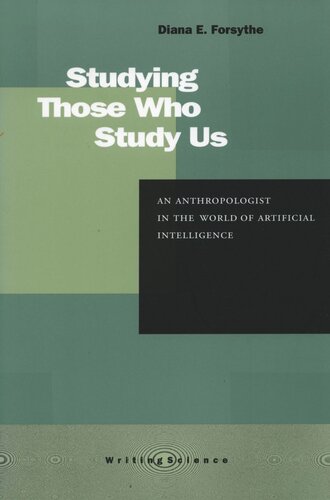

Most ebook files are in PDF format, so you can easily read them using various software such as Foxit Reader or directly on the Google Chrome browser.
Some ebook files are released by publishers in other formats such as .awz, .mobi, .epub, .fb2, etc. You may need to install specific software to read these formats on mobile/PC, such as Calibre.
Please read the tutorial at this link: https://ebookbell.com/faq
We offer FREE conversion to the popular formats you request; however, this may take some time. Therefore, right after payment, please email us, and we will try to provide the service as quickly as possible.
For some exceptional file formats or broken links (if any), please refrain from opening any disputes. Instead, email us first, and we will try to assist within a maximum of 6 hours.
EbookBell Team

4.8
34 reviewsDiana E. Forsythe was a leading anthropologist of science, technology, and work, and especially of the field of artificial intelligence. This volume collects her best-known essays, along with other major works that remained unpublished upon her death in 1997. The essays proceed as a series of developing variations on the key questions that still confront science and technology studies today. What assumptions do expert systems designers make about users, and about knowledge more broadly, when they build software? How should humans interact with computers, and how do they, really? Why do computing firms hire anthropologists to study human-computer interaction, and what do anthropologists find once they are hired? And how and why are traditional power asymmetries between men and women produced and maintained in engineering firms and laboratories? The book is not only a significant anthropological study of artificial intelligence and informatics, but is also an exemplar of how reflexive ethnography should be done. Among several pioneering strands of thought, it investigates the roles of gender and power in computer engineering, looking at the cultural mechanisms that support the persistent male domination of engineering, and analyzing the laboratory as a fictive kin group that reproduces gender asymmetries.